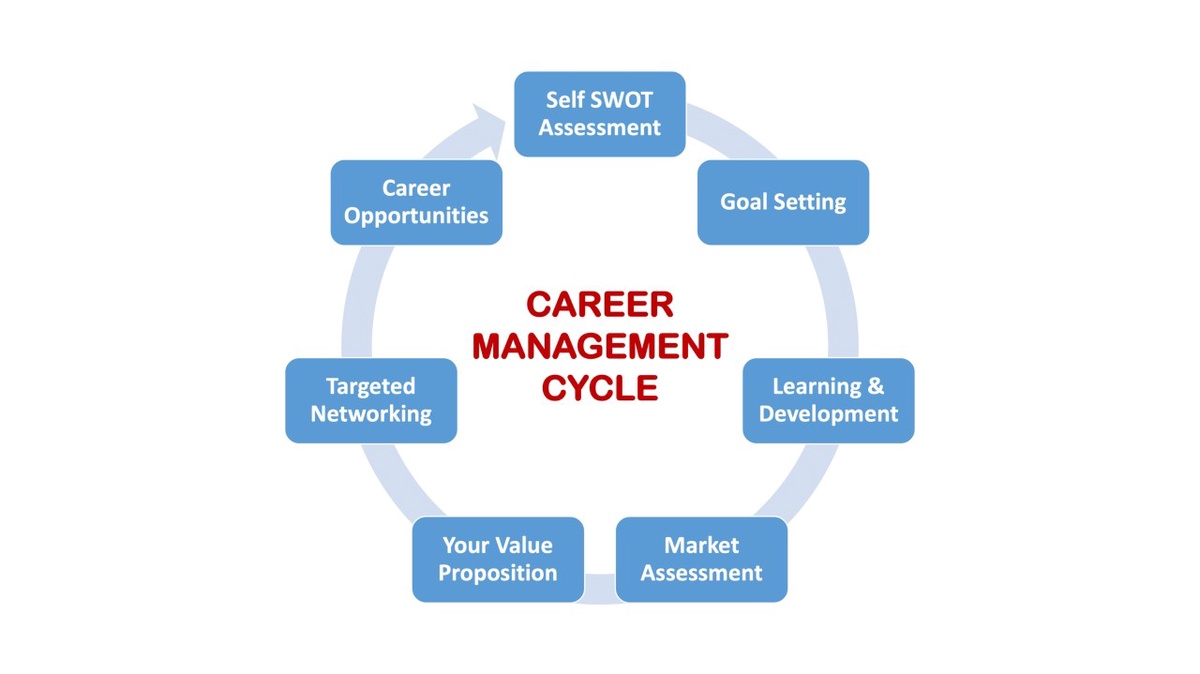In today's fast-paced and competitive business world, managing your career effectively is crucial for long-term success and fulfillment. Career management involves a strategic approach to planning, developing, and advancing your career goals within an organization or industry. Whether you're just starting out in your career or looking to climb the corporate ladder, mastering career management skills can help you navigate challenges, seize opportunities, and achieve your professional aspirations.
Understanding Career Management
Career management encompasses various activities, including self-assessment, goal setting, skill development, networking, and navigating career transitions. It's about taking proactive steps to shape your career path and adapt to evolving circumstances. By actively managing your career, you can enhance your employability, increase job satisfaction, and achieve greater stability and growth in your chosen field.
Assessing Your Skills and Interests
The first step in effective career management is to assess your skills, strengths, interests, and values. Reflect on your past experiences, accomplishments, and challenges to gain insights into what motivates and energizes you. Consider your long-term career aspirations and the skills required to achieve them. Self-awareness is key to identifying potential career paths and aligning your goals with your personal and professional values.
Setting Clear Career Goals
Once you have a clear understanding of your strengths and interests, it's important to set specific, measurable, achievable, relevant, and time-bound (SMART) career goals. Whether you aspire to advance within your current organization, transition to a new role, or pursue entrepreneurial ventures, setting clear objectives can provide direction and focus. Break down your goals into manageable steps and regularly review and adjust them as needed to stay on track.
Developing Your Skills and Knowledge
Continuous learning and skill development are essential components of career management. Keep abreast of industry trends, technological advancements, and best practices relevant to your field. Pursue formal education, professional certifications, and training programs to enhance your expertise and stay competitive in the job market. Seek out opportunities for mentorship, coaching, and feedback to accelerate your growth and development.
Building a Strong Professional Network
Networking is a valuable tool for career advancement and opportunity identification. Cultivate relationships with peers, mentors, industry leaders, and professionals in your field. Attend industry conferences, seminars, and networking events to expand your circle of contacts and exchange ideas. Leverage social media platforms such as LinkedIn to connect with like-minded professionals and showcase your skills and achievements.
Seizing Career Opportunities
Be proactive in seeking out and seizing career opportunities that align with your goals and aspirations. Stay open to new challenges, experiences, and roles that may arise within your organization or through external avenues. Volunteer for projects, assignments, and cross-functional teams to broaden your skill set and visibility within the company. Take calculated risks and be willing to step out of your comfort zone to pursue growth opportunities.
Managing Career Transitions Effectively
Career transitions, whether voluntary or involuntary, are inevitable in today's dynamic work environment. Whether you're changing roles, industries, or career paths, it's important to approach transitions strategically. Assess your transferable skills, update your resume and online profiles, and tailor your job search strategy to your target roles and industries. Seek support from mentors, career coaches, website, and professional networks to navigate transitions with confidence and resilience.
Balancing Work and Life Demands
Maintaining a healthy work-life balance is essential for sustainable career success and personal well-being. Set boundaries around your work hours, prioritize self-care activities, and make time for hobbies, family, and social connections. Recognize the importance of rest and relaxation in recharging your energy and creativity. Practice mindfulness and stress management techniques to cope with work-related pressures and maintain perspective.
Leveraging Technology for Career Advancement
In today's digital age, technology plays a significant role in career management and professional development. Stay current with digital tools, platforms, and applications relevant to your industry and job function. Utilize online resources for job searching, skill-building, networking, and personal branding. Leverage social media, blogging, and online portfolio platforms to showcase your expertise and expand your professional reach.
Cultivating a Growth Mindset
Adopting a growth mindset is essential for navigating career challenges and embracing opportunities for learning and development. Embrace setbacks and failures as opportunities for growth and resilience. Cultivate a positive attitude, persistence, and adaptability in the face of adversity. Focus on continuous improvement and seek feedback to enhance your skills and performance. Believe in your ability to learn and evolve throughout your career journey.
Advocating for Yourself
Advocating for yourself is a critical aspect of career management, particularly when it comes to negotiating compensation, promotions, and career advancement opportunities. Take ownership of your career trajectory by articulating your goals, accomplishments, and aspirations to key stakeholders. Develop effective communication and negotiation skills to assertively advocate for your interests and value proposition. Be proactive in seeking out opportunities for advancement and recognition within your organization.
Embracing Lifelong Learning
In today's knowledge-based economy, continuous learning is essential for career growth and adaptability. Embrace a mindset of lifelong learning and professional development to stay relevant and resilient in your chosen field. Seek out formal and informal learning opportunities, such as online courses, workshops, conferences, and peer learning groups. Stay curious, explore new ideas, and challenge yourself to acquire new skills and knowledge throughout your career journey.
Fostering Resilience and Adaptability
Resilience and adaptability are essential qualities for navigating career challenges and uncertainties. Embrace change as a natural part of the career journey and remain flexible and open-minded in your approach. Develop coping strategies for managing stress, setbacks, and unexpected obstacles. Cultivate a support network of mentors, peers, and friends who can provide guidance and encouragement during challenging times. Remember that resilience is not just about bouncing back from adversity but also about growing stronger and more resourceful in the process.
Giving Back and Paying It Forward
As you progress in your career, consider how you can give back to your profession, community, and future generations of professionals. Mentorship, volunteering, and advocacy are powerful ways to contribute your time, expertise, and resources for the greater good. Share your knowledge and insights with others, support diversity and inclusion initiatives, and champion causes that align with your values. By paying it forward, you can leave a lasting legacy and make a positive impact beyond your individual career accomplishments.
Conclusion
Mastering career management in business requires a combination of self-awareness, goal setting, skill development, networking, and resilience. By taking a proactive and strategic approach to managing your career, you can navigate challenges, seize opportunities, and achieve long-term success and fulfillment. Embrace lifelong learning, cultivate a growth mindset, and advocate for yourself with confidence and conviction. Remember that your career journey is a marathon, not a sprint, and success is measured not only by professional achievements but also by personal growth and contribution to the greater good.


No comments yet